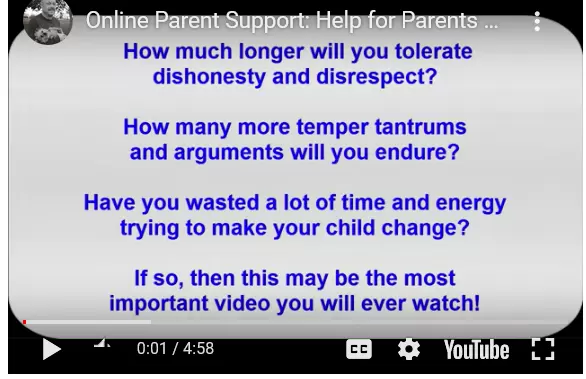
Arguing helps your teen develop an increased sense of ownership over their lives. If your teen is challenging you to get her way, don’t shut her down, unless it becomes a constant argumentativeness. Bear in mind argumentative teenagers are used to parents usually giving in and giving up
Bring the problem into the relationship -.
- Have a talk with your teen not about the topic but about the argumentativeness. Show him that he seems to be arguing over lots of little things, that you are trying to see his point of view, and if not tell me. But that he doesn’t seem to be seeing your side of things. Let him know you just want him to be aware of this and not have to win every disagreement.
- Sometimes it’s helpful for the parent to detach from the argument to observe the pattern of their teen’s behaviour.
- Keep bringing it up so your teen can see it is a pattern for him. He may initially refuse to see that he can’t disagree without fighting but awareness is the first step to change.
Be Patient but set a limit – when you realise the issue isn’t about right or wrong, fair or unfair, but about trying to get you to change your mind, put a limit on how far the conversation goes. Its not your job to get your teen to agree or be happy with you.
Establish and enforce the consequence – An example here might be “I want to hear how you feel when you feel I am wrong about a limit, and I will listen to what you want to say. At the moment, though, it seems you are trying to talk me out of decisions I am making. If you insist on arguing with me after we have done this a few times then I will have to double the consequence. FOLLOW THROUGH
rude teens who pressure others to side may “grow up” to be argumentative, rude adults. More disturbing, these rude-teens-turned-rude-adults report high levels of communication and high levels of satisfaction in their relationships in spite of friends and romantic partners describing them as “impossible to get along with” or “impossible to talk to.” As rude teens, they developed “relationship blindness.” As adults, they remained “blind” to the impact of their negative behaviors on the people around them and their relationships with them. They do not pick up on social cues that allow them to adjust their behavior, to modify it from rude to polite, pushy to accepting, argumentative to cooperative. And, if there is one thing worse than a rude, argumentative teen, it’s a rude, argumentative adult who doesn’t even know how rude and argumentative they are! None of us want our teens to grow up into a rude adult with “relationship blindness.” So, how do we make sure our teen’s normal argumentative behavior does not develop into relationship blindness leading to life as an argumentative, rude, and pushy adult?
FIRST, AND MOST IMPORTANT, model a better alternative. When you disagree with your spouse, model respect. Listen intently. Speak politely. Allow your spouse to influence you instead of stubbornly insisting he or she agree with you. Do the same with your peers. And, don’t forget to do the same with your teen. Listen tenaciously to understand your teen’s point of view. Remain polite toward your teen, even in the face of their seeming apathy. Look for areas of agreement. Even allow your teen’s point of view to influence you. Our teens learn best by watching us. So live the behavior you want to see in them. Model, model, model…and model again.
SECOND, provide times for you and your teen to talk. Teens will become increasingly argumentative when they feel unheard and, as a result, ignored and devalued. Make time to converse. Listen rather than lecture. Become genuinely curious instead of interrogating to gather ammunition to support your perspective. Follow their lead and focus on their ideas and feelings rather than directing the conversation to the morals you desire to emphasize. Avoid giving unsolicited advice and offer simple door-opening responses like “really,” “that’s interesting,” “hmmmm,” or “what did you think/do?”
THIRD, talk with your teens about how rude, argumentative behavior impacts other people and relationships. Point it out in movies or sitcoms. Don’t overdo it. Just nonchalantly point out the impact of a character’s rude behavior and then go on to other aspects of the show. If they want to talk about the rude behavior, follow their lead. Otherwise, let it go. You can also use real life examples—examples from your own life or their life. Just don’t do it in a rude, argumentative way. Simply point out people’s response to polite behavior versus rude behavior. Point out the results of truly listening and responding to differences of opinion as opposed to constant arguing. Discuss the results of pushy behavior compared to the results of cooperative behavior.
FOURTH, model a better alternative. Oh, wait. Did I already say this? Sorry. It’s worth saying it one more time though. Model the life you want your children to live!
